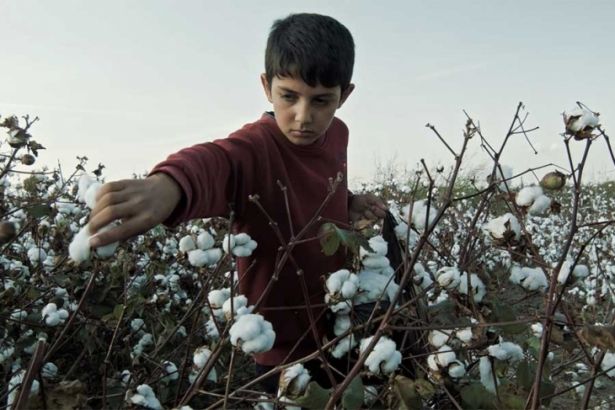Child labourers carry burden of system of exploitation

As June 12 marks the world day against child labour, facts and figures regarding the condition of working children in Turkey portray how the capitalists increase their wealth on child labour. The number of child labourers increased 20 per cent during the rule of the AKP government and around 300 children fell victim to occupational murder in the last seven years.
NO REGULATION THAT PROHIBITS CHILD LABOUR BELOW AGE OF 18
Although the ruling AKP government announced 2018 as the year of "fight against child labour", there is no single legal arrangement that prohibits child labour below the age of 18. The AKP government had guaranteed to the ILO that it would terminate child labour in Turkey in 2015.
The highest increase in child labour is observed for ages between 6-14. Although child labour is most common in the agricultural field, there is no inspection or sanction against the employment of children in this field. The highest number of the occupational murder of children is in the agricultural labour as well. The children are temporarily employed for agricultural works between March and November every year; or in other words, they are employed seasonally.
According to the data of Turkish Statistical Institute (TÜİK) for 2013, 25 per cent of the whole 26 million labour force in Turkey is employed in the agricultural field. Seasonal agricultural workers, on the other hand, comprise almost half of the whole agricultural labour force. Another TÜİK data for 2012 say that around 400 thousand children in Turkey work seasonally in the agricultural fields.
RISKS AND CONDITIONS OF SEASONAL AGRICULTURAL LABOUR FOR CHILDREN
Seasonal employment of children in agriculture prevents children not only from a regular home environment, but also from some basic needs like access to education and health services. Access to clean drinking water, and hygienic conditions are not possible in camps for seasonal agricultural workers.
Even if the children are not employed, the parents working as seasonal agricultural labourers are deprived from public services necessary for their livelihood. For example, the ruling AKP government does not provide a daycare centre for the children of these families. This situation is one of the factors that obliges child labour in agriculture. It also causes hidden child labour by compelling the elder children to look after their brothers and sisters at home while their parents work.
The lives of children are at risk even when they are in the wombs of their mothers. Agricultural pesticides and viruses or toxic matters create high risks of an anomaly during the pregnancy. The high number of mental retardation of children of seasonal agricultural workers are known to be widely caused by agricultural pesticides. Children are also more vulnerable to microorganisms at the seasonal agricultural camps, causing frequent cases of bronchitis, diarrhoea, and influenza. Death of children by venomous animals at the camps is quite high, though mostly not mentioned in the local media.
While around 50 per cent of the children whose parents are agricultural labourers quit school, the rest do not have access to regular education.
OCCUPATIONAL MURDERS AND WORK CONDITIONS
Agricultural labour is one of the areas that capitalism benefits from children as an unqualified cheap labour force. Children working in this field work around 9-11 hours a day, and 68 hours a week.
Work conditions in the agricultural field put the lives of children at risk. Children fall from trees, get stuck under agricultural machines, face traffic accidents at the service busses, or poisoned by agricultural toxins. According to a 2013 report by Worker Health and Work Safety Council, the highest number of child death at work is in the field of agriculture, followed by the metal sector, construction and textile.
Although Turkey is part of the UN Convention on the Rights of Children, violation of the rights of children in Turkey is quite high. During the rule of the AKP government, the increase in unemployment and cheap labour force heightened exploitation of children.



